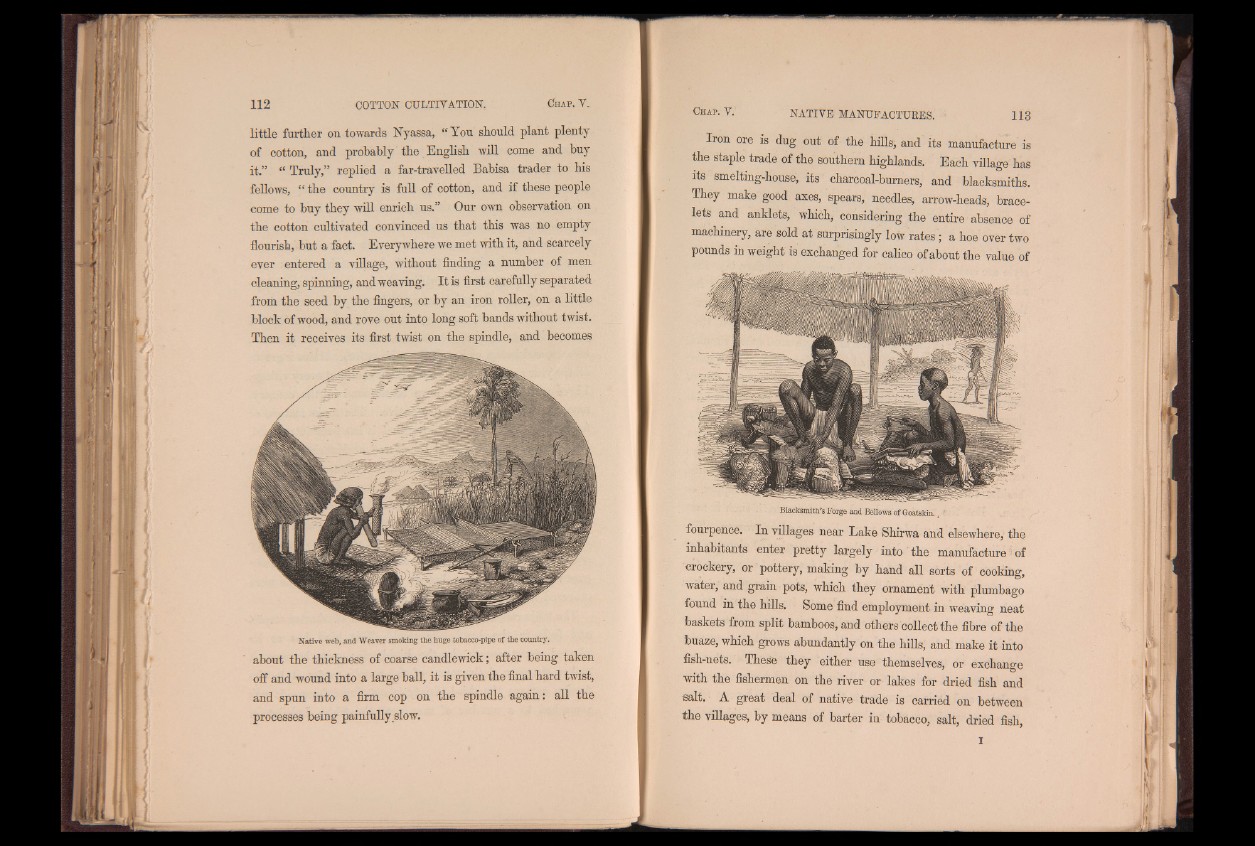
little further on towards Nyassa, “ You should plant plenty
of cotton, and probably the English will come and buy
it.” “ Truly,” replied a far-travelled Babisa trader to his
fellows, “ the country is full of cotton, and if these people
come to buy they will enrich us.” Our own observation on
the cotton cultivated convinced us that this was no empty
flourish, but a fact. Everywhere we met with it, and scarcely
ever entered a village, without finding a number of men
cleaning, spinning, and weaving. I t is first carefully separated
from the seed by the fingers, or by an iron roller, on a little
block of wood, and rove out into long soft bands without twist.
Then it receives its first twist on the spindle, and becomes
Native web, and Weaver smoking the huge tobacco-pipe of the country.
about the thickness of coarse candlewick; after being taken
off and wound into a large ball, it is given the final hard twist,
and spun into a firm cop on the spindle again: all the
processes being painfully slow.
Iron ore is dug out of the hills, and its manufacture is
the staple trade of the southern highlands. Each village has
its smelting-house, its charcoal-burners, and blacksmiths.
They make good axes, spears, needles, arrow-heads, bracelets
and anklets, which, considering the entire absence of
machinery, are sold at surprisingly low rates; a hoe over two
pounds in weight is exchanged for calico of about the value of
Blacksmith’s Forge and Bellows of Goatskin., t
fourpence. In villages near Lake Shirwa and elsewhere, the
inhabitants enter pretty largely in to ' the manufacture of
crockery, or pottery, making by hand all sorts of cooking,
water, and grain pots, which they ornament with plumbago
found in the hills. Some find employment in weaving neat
baskets from split bamboos, and others collect the fibre of the
buaze, which grows abundantly on the hills, and make it into
fish-nets. These they either use themselves, or exchange
with the fishermen on the river or lakes for dried fish and
salt. A great deal of native trade is carried on between
the villages, by means of barter in tobacco, salt, dried fish,